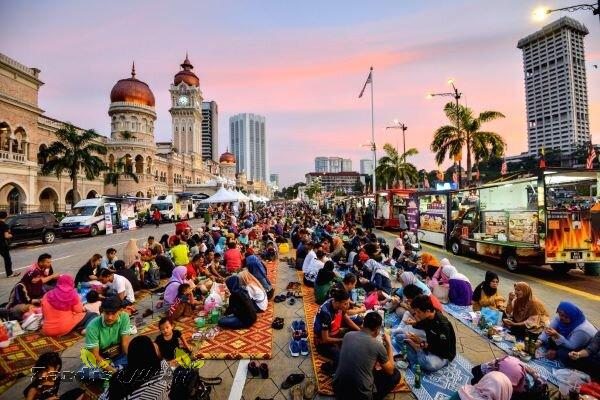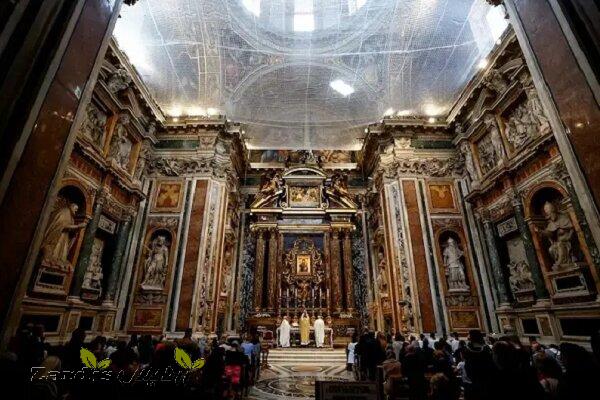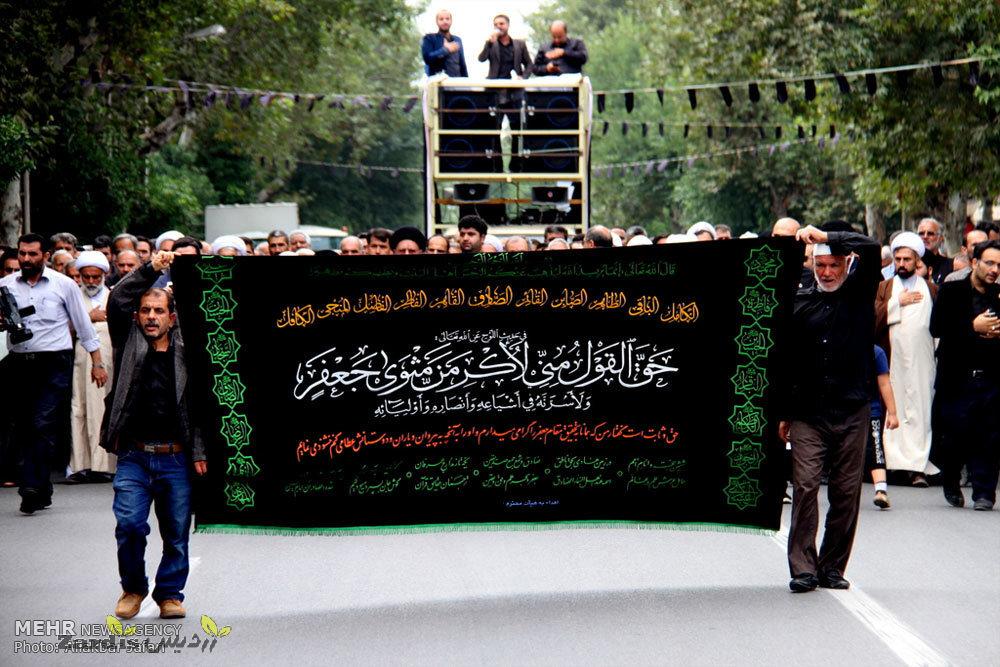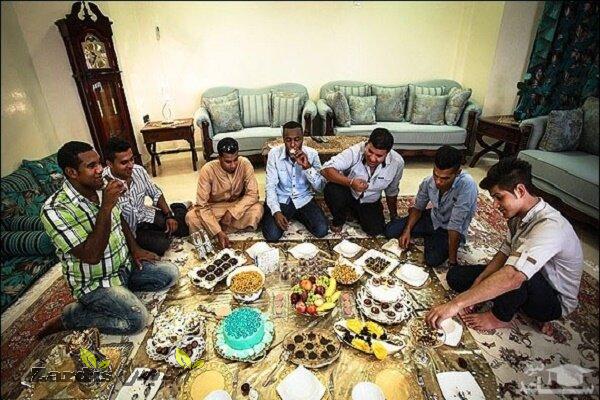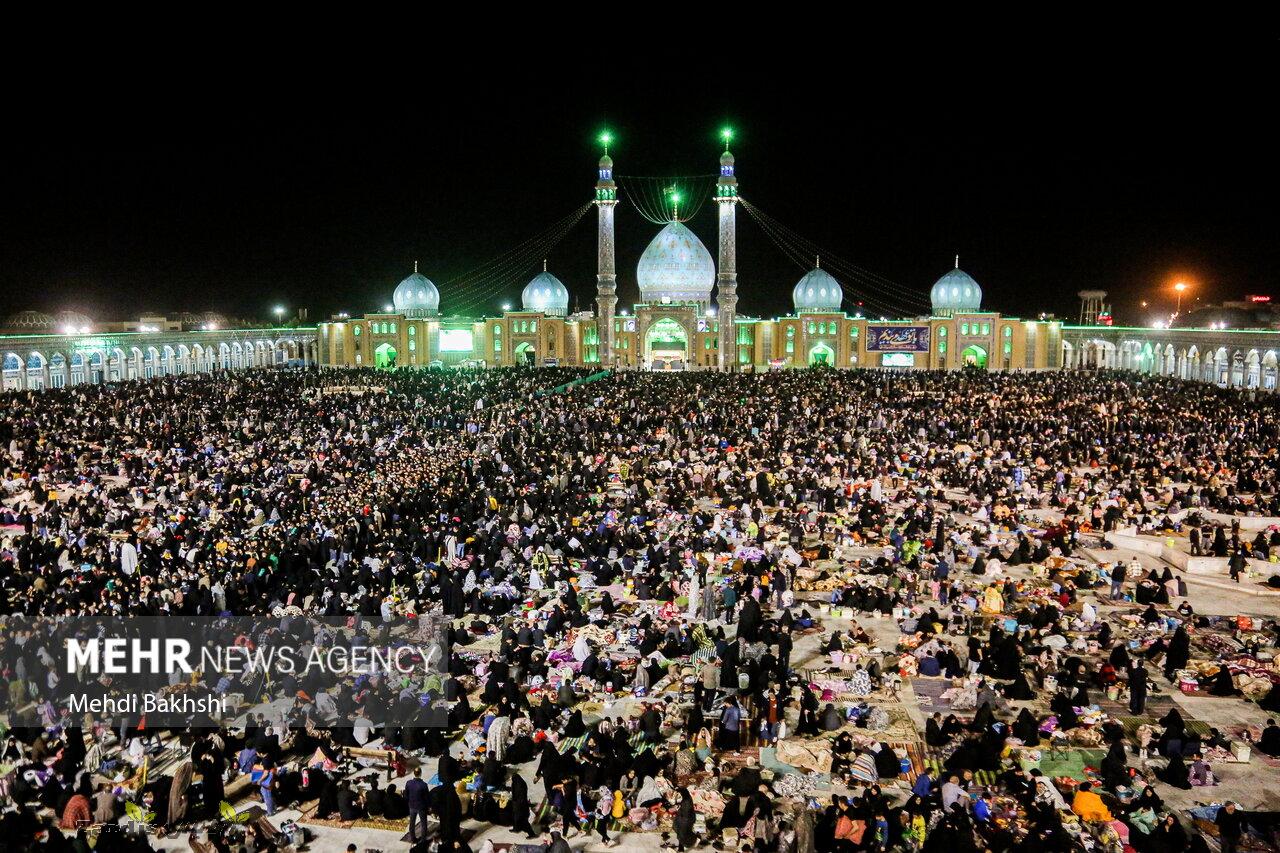Muslims from around the world observe Ramadan, the ninth month of the Islamic calendar, in their unique ways. Every community welcomes the holy month with its distinctive traditions and practices.
Ramadan begins with the rising of the crescent moon and is a time for spiritual discipline, charity, generosity, and prayer. During the day, you’ll find Muslims around the world fasting from dawn until dusk, abstaining from eating and drinking any liquids (including water), and refraining from habits like smoking, gossiping, and arguing. However, the nights are the real days during Ramadan.
Over 61% of Malaysia’s population observes Islam, so Ramadan is a very special time in the country. The traditions are similar to those in other Muslim countries: observers break fast each day with the evening meal, a tradition called “berbuka puasa”.

Those who are not familiar with warm climates, it can be quite a challenge observing Ramadan in Malaysia as it often gets very hot and dry during this month. But experiencing Ramadan in Malaysia has its own merits as the atmosphere is nothing short of convivial.
The first day of Ramadan is a public holiday in the states of Melaka, Johor, and Kedah. Most offices close at least an hour early during this month, and you can see an unusual amount of vehicles on the roads all rushing to get home to prepare for the day’s breaking of fast (iftar).
Ramadan is the most important religious event for Muslims in Malaysia. The month officially starts when the minister of religious affairs makes the announcement. Afterwards, the streets get crowded, especially where there are shops that sell dates, nuts, and other popular foods during Ramadan.
Even Buddhist and Hindu sellers fill their bazaars with Ramadan goods.
Once the start of Ramadan is announced, municipalities spray the main streets with water and clean the main squares. Also, decorations and electric lamps are hung on mosques and in the streets.
Muslims exchange greetings and owners of shops hang signs with phrases of congratulations on them, such as “Ramadan mubarak”.

Ramadan bazaars offering various Ramadan dishes in Malaysia
Perhaps the most special and distinguishing aspect of Ramadan in Malaysia is the Ramadan bazaars that can be found in almost every corner all over the country, offering a huge array of mouth-watering delicacies for you to break your fast with.
Malaysians love our Bazaar Ramadan. This is where everyone will come to buy exotic food like Nasi Kerabu, Pulut Panggang, and special drinks that are not usually found on normal days.
Be sure that no one can finish tasting all the food and drinks that are offered at the Bazaar, thanks to the diversity in culture in Malaysia.

Night markets are also popular dining spots after sunset, open to all, serving the masses as they break the fast with affordable street food feasts. In the small hours, some beaches, such as Batu Burok Beach in Kuala Trengganu, play host to suhoor gatherings where vendors dish up picnic treats for diners before dawn.

Ramadan bazaar” is a festival with foods made in Ramadan, held anywhere within nearby residential communities, especially in cities.
Nearly two hours before sunset, Muslims race to these festivals to choose their favorite foods, drinks, and sweets.
It is not unusual to also see non-Muslims racing to buy various foods at these festivals, as some of these foods can be seen only once a year, including various grilled and boiled halal meat with spices and curry. Kebab, shawarma, qatayef, and mushrooms can also all be found.
Bubur Lambuk
A Malaysian tradition every Ramadan is the making and distribution of ‘bubur lambuk’, a special porridge cooked with coconut milk, meat, condiment, and spices. It’s a heavy meal for iftar. Good enough to feed the needy.
During Ramadan and before the Maghrib prayers at sunset, the areas in front of mosques become very crowded, as free Ramadan meals like Bubur Lambuk are given away.
Most masjids around Malaysia will receive enormous donations to support all activities and to help prepare Bubur Lambuk for the whole of Ramadan.

This dish can almost only be found during Ramadan.
Ramadan activities, Eid Al-Fitr in Malasiya
Muslims hold contests during Ramadan, such as contests of modern fiqh (Islamic jurisprudence) and Quran memorization. At the end of the month, awards are given to winners in large ceremonies attended by officials from the Ministry of Religious Affairs.

In the last 10 days of Ramadan, men remain in mosques in seclusion in large numbers. They are offered drinks and beverages as a form of solidarity that Malaysians are usually very keen on during Ramadan. Also, a few days before Eid, young people in Malaysia form committees in mosques to collect “Zakat” (alms) in order to give to the poor, so that everyone comes out of the month closer to God.

Eid al-Fitr known as Hari Raya Puasa in Malaysia
The night before Eid, members of the government go out to look for the new moon, and if it is sighted, the next day is declared Eid on national television.
On Eid day, people mainly wear traditional clothes, with men wearing baju melayu and women wearing baju kurung. Malaysians often hold open houses at their homes on Eid day, a time period during which any friends, family, or neighbors (Muslim or Non-Muslim) are able to visit, feast on a meal, and enjoy themselves.

During Ramadan. Women start to sew beautiful curtains and buy new clothes for the family. Some families also do renovation so that their home will look better when any guests visit it during the festival. After fulfilling their one-month of fasting, the Muslims are joyful to celebrate Hari Raya Puasa.
On the morning of the festival, the Muslims wear their new clothes and go to the mosque to pray. They offer their thanks to God and after that, they would ask for forgiveness from their elders.

Many Hindus and Buddhists become Muslims during Ramadan and announce it during the prayers of Eid Al-Fitr.
Compiled by Marzieh Rahmani
- News code 46968
- 223 View
- بدون نظر
Zardis news | The latest news of Iran and the world
تمامی حقوق مطالب برای Zardis news محفوظ است و هرگونه کپی برداری بدون ذکر منبع ممنوع می باشد.
طبق ماده 12 فصل سوم قانون جرائم رایانه ای کپی برداری از قالب و محتوا پیگرد قانونی خواهد داشت.
طراحی و اجرا: سامانه سایت ساز زردیس



